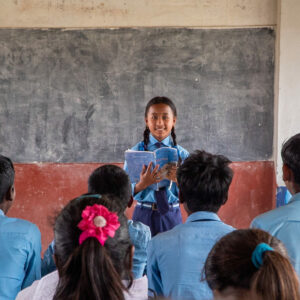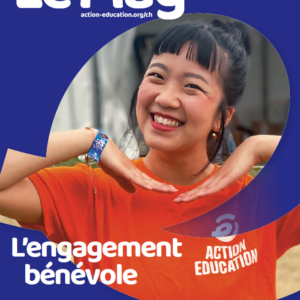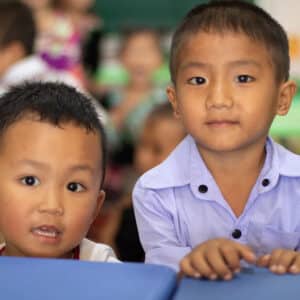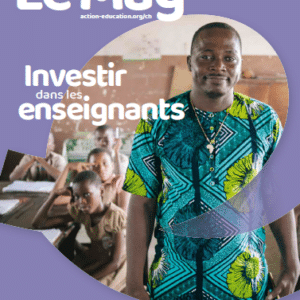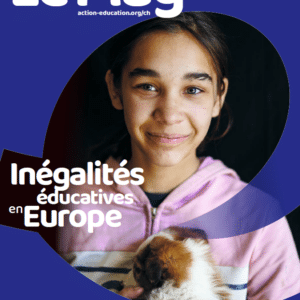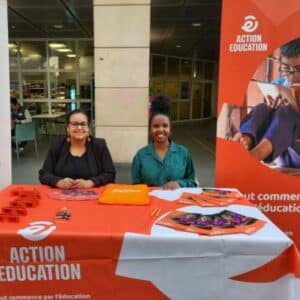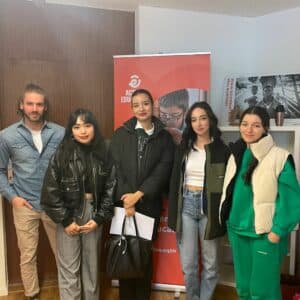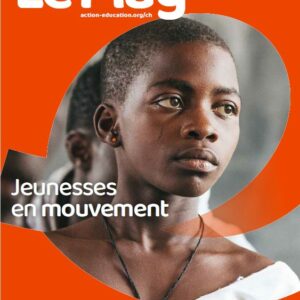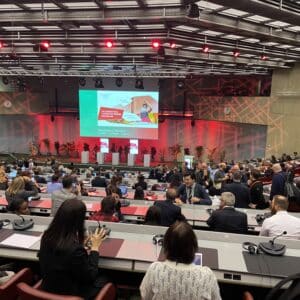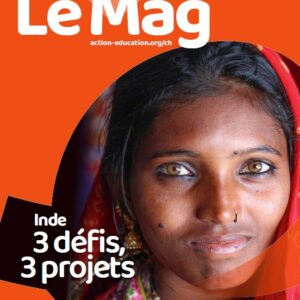In Burkina Faso, socio-cultural barriers hinder girls' access to education. Through the "Scolarisation des Filles" (SCOLFILLE) project, Aide et Action and the Foundation L'OCCITANE allow 1872 girls aged 9 to 13 to return to school.
Nathalie Kontogma is 13 years old. She stopped going to school because her parents refused to re-enrol her because she is a girl. She fled her village to the nearest town where she was employed as a housekeeper and later as a waitress in a bar. Back in her village, she learns that a SCOLFILLE project centre has just opened to give girls the chance to continue their education.
"I came to register myself. I am learning very well. I can read and calculate. I am very happy because I will be able to get my Primary School Certificate and go to college. I will work hard to succeed in order to become an independent woman. she explains.
Like Nathalie, many girls in Burkina Faso do not attend school or drop out early. There are many reasons for this: low consideration of the importance of girls' schooling, parental poverty, early marriages, low self-esteem among girls, the importance of the household burdens to which girls are generally subject...
Aide et Action's SCOLFILLE project focuses on two provinces - Ziro and Sissili - particularly in 6 communes in the Central West region of the country. It is based on the establishment of bridging classes attached to public primary schools. After a year of accelerated learning, the participants return to the mainstream education system to continue their studies. The project provides facilitators, school furniture, teaching and learning materials, and school supplies for the students. School fees are covered and support for meals is provided.
Being born a girl should not be a handicap
Information and awareness-raising meetings are held in the six communes concerned by the project. Awareness-raising radio spots are broadcast in the three most widely spoken languages in the intervention zone (Mooré, Nuni and French). Since the start of the project, there has been a greater involvement of community leaders. Little by little, thanks to the increasingly active participation of communities in social mobilisation sessions, the socio-cultural perception of girls' education is improving.
Unlike her two brothers, 13-year-old Rakiatou Konaté did not attend school. Her father preferred to send her to Ouagadougou to work as a domestic help. "I didn't go to school. I helped my aunt sell food. My father said he couldn't afford it.explains Rakiatou. In 2021, her father died and she returned to her village, to her mother. Thanks to the SCOLFILLE project, Rakiatou was enrolled in the To centre (one of the project's target communes) with her mother's agreement. "I am happy. I would like to study and become a shopkeeper.she says.

In Métio, one of the villages in the Sissili province also concerned by the project, the President of the Village Development Committee says: " The SCOLFILLE project has already produced a concrete result: girls have returned to school with the hope of continuing their studies ".
The centre's facilitator, Ousmane Nébié, is confident: " The progress is good. [...] If the students attend classes regularly, we will finish the programme and they will be able to return to the mainstream system ".
The SCOLFILLE project is an integral part of the global movement Education For Women Now initiated by Aide et Action, whose goal is to enable 3 million girls and women, among the most vulnerable and marginalized, to finally have access to quality education in Africa, Asia and Europe by 2025.



